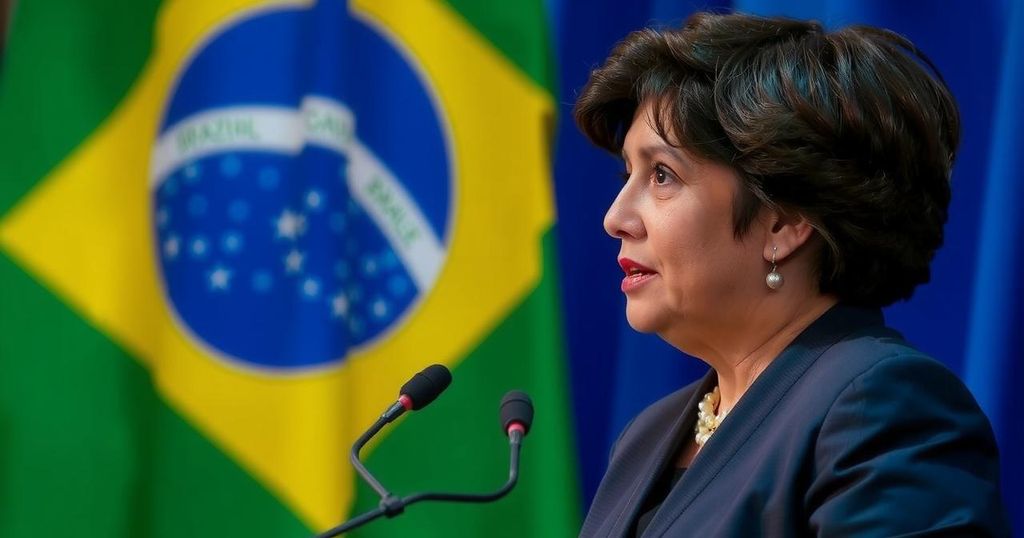Brazil’s Climate Change Minister Marina Silva criticized Argentina’s COP29 withdrawal as detrimental to global climate efforts but asserted that it would not hinder ongoing negotiations for financial support. Vice-President Alckmin supported her stance, warning of potential economic consequences for Argentina while emphasizing the role of science in addressing climate issues.
On Thursday, Brazil’s Environment and Climate Change Minister Marina Silva criticized the decision made by Argentinian President Javier Milei to withdraw his delegation from the upcoming Conference of Parties 29 (COP29) in Baku, Azerbaijan. Minister Silva articulated that such a move contradicts the global climate efforts essential for addressing climate change, emphasizing that all nations are accountable for their roles in mitigating its adverse impacts. Nonetheless, she expressed confidence that Argentina’s absence would not hinder ongoing negotiations aimed at securing financial support from developed nations for developing countries to comply with environmental agreements. Silva lamented that every country that neglects its responsibilities is contributing to the exacerbation of climate issues that threaten agriculture, industry, and livelihoods. Furthermore, Silva highlighted the progressive outcomes of the recent G20 discussions, which convened in Rio de Janeiro, noting significant dialogue around ecosystem services and taxing affluent individuals. She underscored that despite differing opinions on economic policies, the overarching desire of societies is to preserve their families and businesses from the threats posed by climate change. The minister asserted that countries withdrawing from commitments like the Paris Agreement would ultimately face repercussions. Vice-President Geraldo Alckmin echoed Minister Silva’s concerns over President Milei’s stance. He asserted that scientific advancement serves to benefit humanity, drawing on historical examples from medicine and public health. Alckmin cautioned that Milei’s decision could have detrimental economic consequences for Argentina, potentially diminishing its GDP, although he clarified that this would not affect the broader state relations.
The article discusses the implications of Argentina’s decision to withdraw from COP29, a crucial international climate conference. It highlights Brazil’s response, focusing on the views of its Environment Minister and Vice-President, who express concern about the ongoing global climate crisis and emphasize the importance of international cooperation in tackling environmental challenges. The remarks illustrate the broader ongoing debates about climate change responsibilities among nations, particularly those less committed to international agreements. The lead-up to COP29 serves as a backdrop for these discussions, emphasizing the importance of previous agreements like the Paris Accord and the collective actions needed to address climate change globally.
In summary, Brazil’s Environment and Climate Change Minister Marina Silva condemned Argentina’s withdrawal from COP29, emphasizing a collective responsibility among nations to combat climate change. She expressed confidence that ongoing negotiations would continue to advance despite this setback. Furthermore, Vice-President Geraldo Alckmin highlighted the scientific advancements that benefit society, warning against the economic ramifications for Argentina resulting from Milei’s decision. The situation underscores the importance of global cooperation in addressing pressing environmental issues.
Original Source: en.mercopress.com







